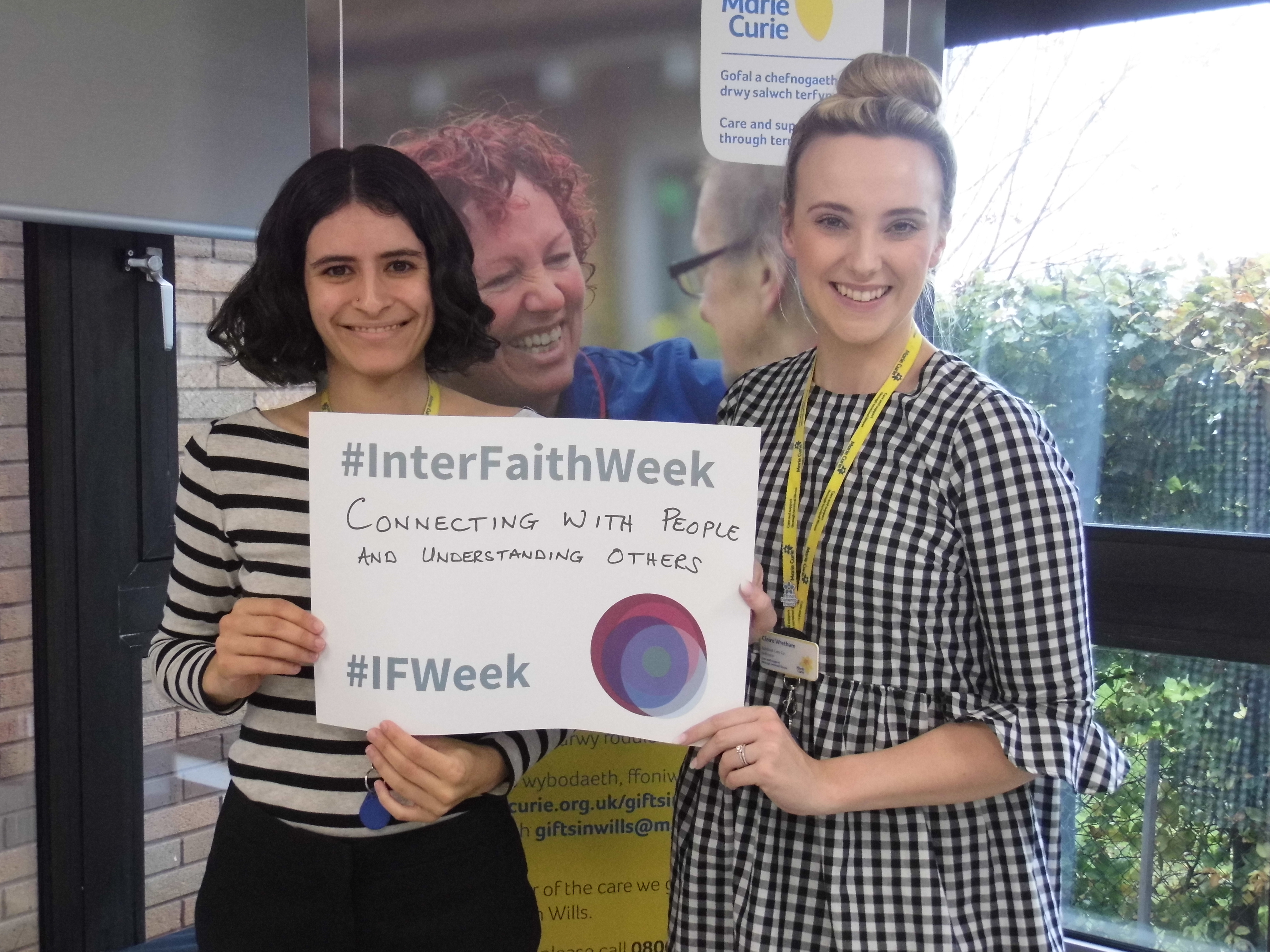Interfaith Week: How Marie Curie Cardiff hopes to meet spiritual needs
Press release published
Interfaith week begins each year with Remembrance Sunday and provides an opportunity for many different beliefs to gather and remember as well as network, connect and understand one another. The Marie Curie Hospice - Cardiff and the Vale is seeking to improve the way that the organisation recognises and responds to the spiritual needs of its patients and is celebrating this during Interfaith Week 2017 which will run from Sunday 9th- Sunday 17th of November.
Since 2016 the hospice has been running project funded by Big Lottery that is exploring the barriers that people with different or no religious beliefs find when accessing end of life care. The project, “Including Diverse Communities in End of Life Care”, is trying to identify ways these barriers can be reduced so that people of all backgrounds receive appropriate care and support when affected by terminal illness.
Alongside this project, the hospice has appointed a new staff member Claire Wretham to coordinate the new “Spiritual Care Service”. The Spiritual Care Coordinator replaces the former Chaplaincy role in order to meet the diverse range of the population we serve. Whilst the role includes some of the traditional elements of pastoral care typically associated with a chaplain role, it also means there is a point of contact for faith communities and patients. The Spiritual Care Coordinator will work more closely with local religious communities to ensure that the spiritual needs of patients with all faiths and beliefs are coordinated, rather than pigeon holing spiritual care into a Christian position. Rabbi Rose of the Cardiff United Synagogue says, "This service will be greatly beneficial to some of the most vulnerable at their time of need."
Claire has worked with various faith groups in Penarth and Cardiff and has also been training nursing staff at the hospice to better recognise and talk with patients about their beliefs. “By asking questions about faith and belief, we can work out what is important to a patient and tailor their care accordingly. When spiritual needs are met and recognised this can lead to greater comfort for patients that are receiving palliative care” says Claire. “Interfaith week provides another opportunity to raise awareness of the patchwork of faiths and religions that are followed in South Wales and allows us to celebrate our differences.”
The Including Diverse Communities in End of Life Care project, managed by Monica Reardon, includes a project advisory board of representatives from external organisations and community groups who can feed into the project’s development and implementation. Kathy Riddick, Wales Development Officer for Humanists UK, is part of the project advisory group.
She says: “It is vital that everyone receives support and empathy in their times of greatest need, regardless of their religion or belief, and that is what Marie Curie are working towards. We are happy to be involved in such a worthwhile project.”
The project has consulted with over 250 individuals from a variety of faith backgrounds, including those who are non-religious, through focus groups, community events, and online surveys. All of this will feed back into the development of the Spiritual Care Service. Father Jon Durley, Community Lead for the Diocese of Llandaff, says: “We really value being part of the Marie Curie project so that many more people can receive the special care and support which is so necessary at what can a be a very difficult time.”
These two services act as encouraging indicators for change within the third sector, that much is being done to recognise and respond to a variety of needs in a changing and diverse society.
Monica Reardon, project manager for “Including Diverse Communities in End of Life Care”project and Claire Wretham, Spiritual Care Coordinator at Marie Curie Cardiff and the Vale Hospice
